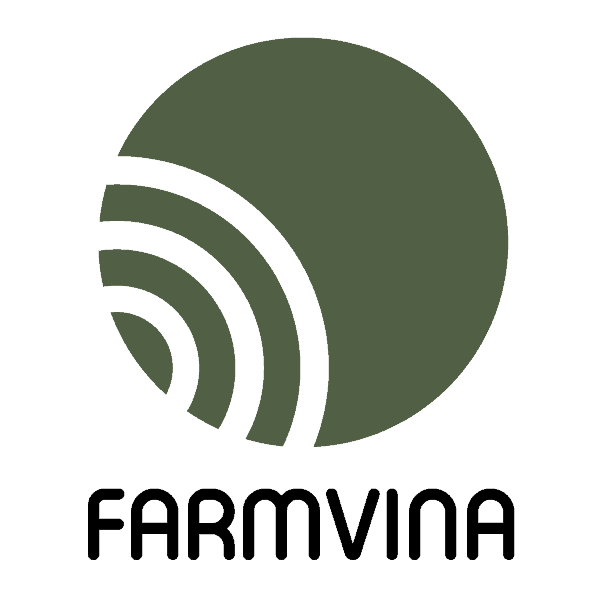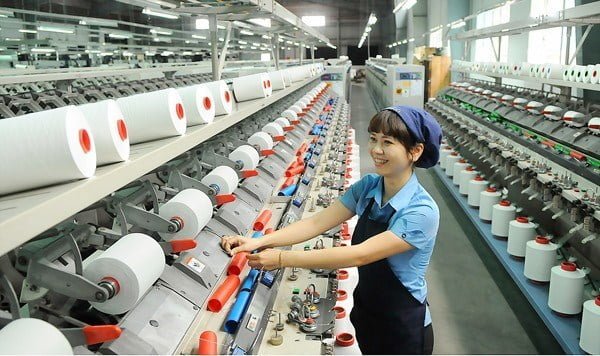Vietnam Sourcing: The Ultimate Guide to Unlocking Your Business’s Potential with 7 Key Benefits
Vietnam sourcing has become an increasingly popular option for businesses looking to cut costs, improve quality control, access skilled labor, and reduce risk. Outsourcing has long been recognized as a strategic business move, allowing companies to focus on their core competencies while leveraging the expertise and resources of external partners.
Vietnam, in particular, has emerged as a top destination for sourcing due to its competitive costs, high-quality manufacturing capabilities, skilled labor force, faster turnaround times, scalability options, reduced risk, sustainability practices, cultural compatibility, and legal considerations. In this article, we will explore each of these benefits in detail and provide examples of successful Vietnam sourcing.
1. Cost Savings
One of the primary reasons why businesses choose Vietnam sourcing is the significant cost savings it offers. Compared to other countries such as China or India, Vietnam offers lower labor costs and operational expenses.
The cost of living in Vietnam is relatively low, which translates into lower wages for workers. Additionally, the Vietnamese government provides tax incentives and favorable policies to attract foreign investment, further reducing costs for businesses.
For example, a study conducted by the Boston Consulting Group found that manufacturing costs in Vietnam are 10-25% lower than in China. This cost advantage allows businesses to produce goods at a lower price point, increasing their competitiveness in the global market.
Companies can also save on transportation costs due to Vietnam’s strategic location in Southeast Asia, which provides easy access to major shipping routes.
2. Quality Control
Quality control is crucial in manufacturing to ensure that products meet the required standards and specifications. Vietnam sourcing has gained a reputation for delivering high-quality products due to its focus on quality control measures. Many manufacturers in Vietnam have implemented internationally recognized quality management systems such as ISO 9001 to ensure consistent quality throughout the production process.
Vietnam also has a strong culture of craftsmanship and attention to detail. The country has a long history of producing high-quality goods, particularly in industries such as textiles, footwear, and electronics. This expertise has been passed down through generations, resulting in a skilled workforce that is capable of producing top-notch products.
For example, companies like Nike and Samsung have established manufacturing facilities in Vietnam to take advantage of the country’s quality control capabilities. These companies have stringent quality standards and have found that Vietnam sourcing allows them to meet and exceed these standards consistently.
3. Access to Skilled Labor
Vietnam is known for its highly skilled labor force, particularly in industries such as manufacturing, engineering, and information technology. The country has invested heavily in education and vocational training programs to develop a skilled workforce that can meet the demands of modern industries.
Vietnam’s education system emphasizes technical skills and practical training, producing graduates who are well-prepared for the workforce. Many universities and vocational schools in Vietnam have partnerships with international institutions, allowing students to gain exposure to global best practices and technologies.
This access to skilled labor through Vietnam sourcing provides businesses with a competitive advantage. They can tap into a pool of talented professionals who can contribute to innovation, product development, and process improvement. Industries such as automotive, electronics, and software development have particularly benefited from Vietnam’s skilled labor force.
For example, Intel has established a research and development center in Vietnam to leverage the country’s pool of talented engineers. The center focuses on developing cutting-edge technologies for Intel’s global operations.
4. Faster Turnaround Time
In today’s fast-paced business environment, speed is crucial. Vietnam sourcing offers faster turnaround times compared to other countries, allowing businesses to bring products to market more quickly. This is due to several factors, including Vietnam’s geographical proximity to major markets, efficient logistics infrastructure, and streamlined manufacturing processes.
Vietnam’s strategic location in Southeast Asia provides easy access to major shipping routes, reducing transportation time and costs. The country also has well-developed ports and airports that facilitate efficient import and export operations. Additionally, Vietnam has invested in improving its infrastructure, including roads, railways, and telecommunications, to support the growing manufacturing sector.
Furthermore, Vietnam’s manufacturing processes have become increasingly efficient and streamlined. Many manufacturers in Vietnam have adopted lean manufacturing principles and implemented advanced technologies to optimize production processes. This allows for faster production cycles and shorter lead times.
For example, companies like Zara and H&M have chosen Vietnam as a sourcing destination due to its ability to deliver fast fashion products. These companies rely on quick turnaround times to respond to changing consumer trends and stay ahead of the competition.
5. Scalability
Scalability is a critical factor for businesses looking to grow and expand their operations. Vietnam sourcing offers scalability options that can accommodate the changing needs of businesses. Whether a company is looking to increase production volumes or diversify its product range, Vietnam can provide the necessary resources and capabilities.
Vietnam has a large pool of suppliers and manufacturers across various industries, making it easy for businesses to find partners that can scale up production quickly. The country also has a flexible labor market, allowing companies to easily adjust their workforce based on demand fluctuations.
Additionally, Vietnam’s government has implemented policies to support foreign investment and encourage business growth. These policies include tax incentives, streamlined administrative procedures, and access to financing options. This supportive business environment makes it easier for companies to scale their operations in Vietnam.
For example, multinational companies like Nestle and Unilever have expanded their manufacturing facilities in Vietnam to meet the growing demand for their products in the region. These companies have found that Vietnam sourcing provides them with the scalability they need to capture market opportunities.
6. Reduced Risk
Businesses face various risks when sourcing products or services from external partners. These risks can include supply chain disruptions, quality issues, intellectual property theft, and geopolitical uncertainties. Vietnam sourcing can help mitigate these risks through its stable business environment, reliable supply chain networks, and strong legal framework.
Vietnam has a stable political and economic climate, with a government that is committed to attracting foreign investment and promoting business growth. The country has also signed numerous free trade agreements, providing businesses with access to a wide range of markets and reducing trade barriers.
Furthermore, Vietnam has a well-developed supply chain infrastructure, including reliable logistics providers, warehousing facilities, and customs clearance procedures. This ensures that goods can be transported efficiently and securely.
In terms of legal considerations, Vietnam has implemented intellectual property laws and regulations to protect the rights of businesses. The country is also a signatory to international agreements such as the World Trade Organization (WTO) and the Paris Convention for the Protection of Industrial Property.
For example, companies like Apple and Microsoft have chosen Vietnam as a sourcing destination due to its strong legal framework and reduced risk of intellectual property theft. These companies rely on the protection of their intellectual property rights to maintain their competitive advantage in the market.
7. Sustainability
Sustainability has become a key consideration for businesses in recent years. Vietnam sourcing offers environmental and social benefits that align with sustainable practices. The country has made significant progress in promoting green manufacturing, renewable energy, waste management, and social responsibility.
Vietnam has implemented policies to encourage sustainable practices in manufacturing, such as energy efficiency programs and waste reduction initiatives. The government has also set targets for increasing the share of renewable energy in the country’s energy mix.
Furthermore, Vietnam’s manufacturing sector has embraced social responsibility by providing safe working conditions, fair wages, and opportunities for employee development. Many manufacturers in Vietnam have implemented social compliance programs to ensure ethical labor practices throughout their supply chains.
For example, companies like Patagonia and Adidas have chosen Vietnam as a sourcing destination due to its commitment to sustainability. These companies have strict sustainability standards and have found that Vietnam sourcing allows them to meet these standards while maintaining cost competitiveness.
Cultural Compatibility
Navigating cultural differences is essential when sourcing products or services from foreign countries. Vietnam sourcing offers cultural compatibility, making it easier for businesses to establish effective partnerships and collaborations. Vietnamese culture emphasizes respect, harmony, and strong relationships, which aligns with many business cultures around the world.
Vietnamese people are known for their hospitality and friendly nature, making it easy for foreign businesses to establish rapport with local partners. The country also has a strong work ethic and a commitment to delivering high-quality products and services.
Furthermore, Vietnam has a growing number of professionals who have studied or worked abroad, providing them with a global mindset and cross-cultural communication skills. This makes it easier for businesses to communicate and collaborate effectively with their Vietnamese counterparts.
For example, companies like Coca-Cola and Procter & Gamble have established successful partnerships with Vietnamese suppliers and manufacturers. These companies have found that Vietnam sourcing allows them to work seamlessly with local partners and leverage their expertise.
Legal Considerations
When considering Vietnam sourcing, businesses need to be aware of the legal aspects involved. Vietnam has a well-defined legal framework that governs various aspects of sourcing, including contracts, intellectual property rights, labor laws, and import/export regulations.
It is important for businesses to understand the legal requirements and obligations when entering into sourcing agreements in Vietnam. This includes ensuring that contracts are properly drafted and enforceable, protecting intellectual property rights through patents or trademarks, complying with labor laws regarding wages and working conditions, and adhering to import/export regulations for customs clearance.
Additionally, businesses should seek legal advice from local experts who are familiar with the Vietnamese legal system and can provide guidance on compliance issues.
For example, companies like Walmart and Amazon have established sourcing operations in Vietnam and have invested in legal resources to ensure compliance with local laws and regulations. These companies understand the importance of legal considerations in Vietnam sourcing to protect their interests.
Conclusion
In conclusion, Vietnam sourcing offers numerous benefits for businesses looking to cut costs, improve quality control, access skilled labor, reduce risk, achieve faster turnaround times, scale their operations, promote sustainability, navigate cultural differences, and comply with legal requirements.
Vietnam has emerged as a top destination for sourcing due to its competitive costs, high-quality manufacturing capabilities, skilled labor force, efficient logistics infrastructure, scalability options, stable business environment, sustainable practices, cultural compatibility, and strong legal framework.
Businesses that consider Vietnam sourcing can gain a competitive advantage and position themselves for success in the global market. It is essential for businesses to explore the opportunities offered by Vietnam sourcing and leverage its benefits for long-term business growth and profitability.
Originally posted 2024-01-13 17:29:20.








